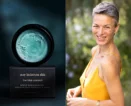In his new book, Why Be Happy, clinical psychologist and author, Scott Haas elaborates on finding contentment and peace in a harried world. By practicing the Japanese idea of ‘ukeireru’, we learn to pause and accept the situations life throw at us before deciding upon a course of action, helping us to become less reactionary and act from a more grounded place. Ukeireru is a unique skill that reframes our mindset and brings peace to those who practice…
Ukeireru is a word used in Japan to describe the acceptance of people and things around us. Not a cultural experience, but a way of life. Accepting that our place in the world depends on our relationships with our families, communities, and nature, we understand that our happiness depends on the happiness of others.
Many of us in the U.S. base our well-being on personal happiness. While stress is certainly experienced due to private matters, its causes are often systemic and institutional. We may start by achieving the calm necessary to create change and work toward being happy, but then it is necessary to take that renewal of strength and address what caused our stress in the first place.
This is how ukeireru works: Acceptance as a way of life that offers the potential for change.
We are hard-wired as human beings to be empathic. When our families are unhappy, we are unhappy. That empathy, whether we are aware of it or not, is also present in our relationships to the communities we live in.
We may be capable of blocking out empathic feelings so that we can continue to feel entitled to all our stuff, but the knowledge that others are suffering, whether we are aware of it day- to-day or not, can erode our sense of well-being.
As Martin Luther King, Jr. noted, a few years before he was murdered by a white supremacist, “Those who are not looking for happiness are the most likely to find it, because those who are searching forget that the surest way to be happy is to seek happiness for others.”
The first way to create well-being associated with ukeireru is to observe what’s going on around you. Contrary to introspection, observation of the world — our environment, communities, how people live, how economic systems shape our most intimate desires and fears — is necessary before anything else.
This means that we must work hard to create awareness. Not just thinking about what we want, or our own moms and dads, but what others want and their upbringing.
Before you can change a situation, accept it for what it is. Don’t deny it, don’t distract yourself. Accept reality.
As Michelle Obama wrote in her memoir, Becoming: “It was possible, I knew, to live on two planes at once—to have one’s feet planted in reality, but pointed in the direction of progress. . . . You got somewhere by building that better reality, if only in your own mind. . . . You may live in the world as it is, but you can still work to create the world as it should be.”
Having observed and accepted the reality of the situation, the second way toward creating well-being is to use your imagination.
Long before imagining anything, long before offering your opinion, you must observe and accept the world. Then, ironically, as jazz great Kenny Garrett says, “Push the world away.” Imagine making things new. Make the happiness of others your priority.
The third way: Accept that change in nature is always incremental. Even an earthquake or volcanic explosion is the result of years of slow, unseen changes beneath the surface. Our task now is to identify what’s happening, what is already in progress, and to latch onto or lead changes that are already taking place.
This requires logic and patience, but especially patience — never easy, even under the best of circumstances, but especially difficult during a crisis.
Finally, be aware of this fundamental observation: Nothing in nature is static. What seems true today, because it has been propagated by authorities, could be shown to be a lie tomorrow.
Adopting the way of life that ukeireru can provide, you are better able to ask three questions that can lead to remarkable results in diminishing the stress of living today:
+ Seriously consider the impact your decisions make on others.
+ Consider if the best decision is not to decide at this moment.
+ Create deep awareness around the sources of the thoughts and emotions that inform your personal decisions.
Ukeireru is a way of life, a pragmatic outlook that helps us to tap into our empathic nature. Having achieved a measure of calm through observation and acceptance, you are now in a position to ask questions that are about the present, and equipped to see what time it is: The time is now.











